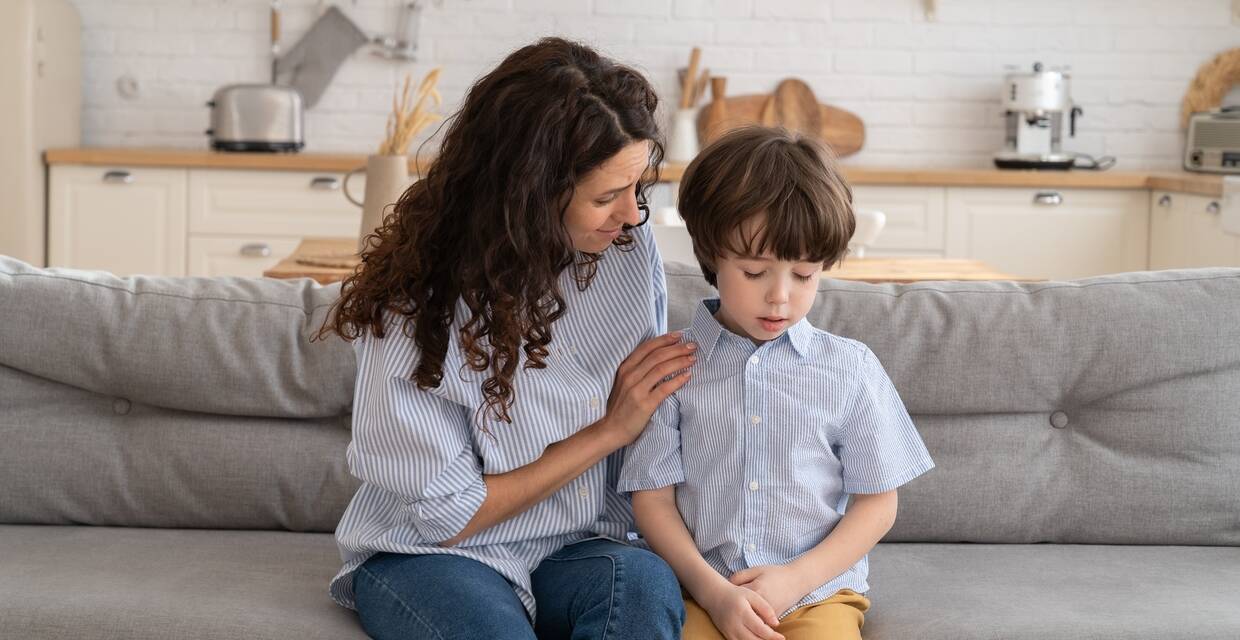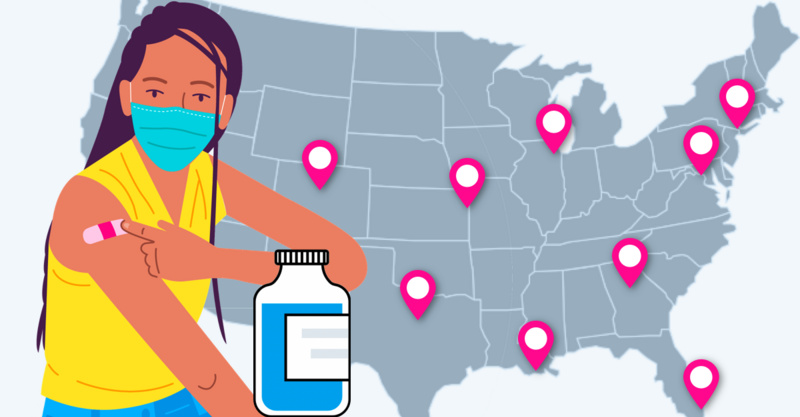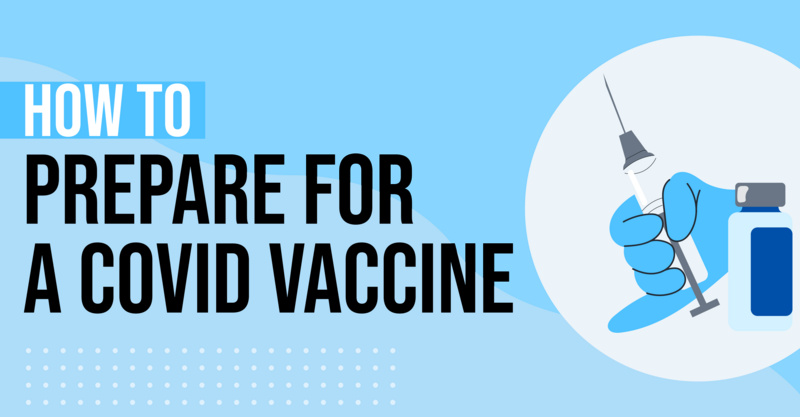Key Points
- The article provides tips on how to prepare children aged 5 to 11 for the COVID-19 vaccine, emphasizing the importance of explaining why the vaccine is necessary, highlighting the benefits, and addressing any concerns the child may have.
- Parents are encouraged to use kid-friendly analogies to explain the purpose of vaccines, emphasize the role the child plays in protecting others, and link the vaccine to positive outcomes like visiting grandparents or having friends over.
- The article suggests validating the child's feelings about the vaccine, preparing them for what to expect, and using distractions during the vaccination process to make it less stressful.
- Giving children a sense of control, such as choosing which arm to get the vaccine in, planning a fun activity post-vaccination, and celebrating their bravery can help ease their anxiety.
- The article concludes by reminding parents that masks are still necessary even after vaccination for added protection and encourages parents to consult with their pediatrician if they have any concerns about the vaccine.
Now that children ages 5 to 11 are eligible for the COVID-19 vaccine, families everywhere are wondering: “How can I prepare my young kids for the shot?”
We spoke with Dr. Anastasia Gentles, M.D., specialty medical officer and pediatrician at NightLight Pediatric Urgent Care, part of the Pediatrix® Medical Group family of practices, for tips to make your kids’ vaccine appointment smooth and stress-free.
Give kids a “why”
“Kids understand much more than we give them credit for,” says Dr. Gentles. “So giving specific reasons to get vaccinated can help them feel more comfortable."
Explain that the vaccine is an easy way to keep yourself and other people from getting sick. Just like there are some medicines we take to feel better when we’re sick, vaccines are a medicine we takebefore we feel sick to keep us from getting sick in the first place.
For an easy, kid-friendly analogy, try comparing vaccines to a bicycle helmet. “The helmet doesn’t keep you from falling off your bike or skinning your elbow, but it keeps you from getting seriously hurt if you do fall,” you can explain. “In the same way, COVID vaccines won’t always keep us from getting sick, but they keep us from getting really sick and needing to go to the hospital.”
Emphasize that the vaccine isn’t just for them, but for everyone else they come into contact with, like grandparents and classmates with health issues. If they have younger siblings, tell them that they’re protecting their baby brother or sister who’s too young to be vaccinated. “Getting the vaccine makes you a superhero,” you can say, “because you’re making the world a better place for the people around you.”
Be upbeat about the benefits
Instead of focusing on the scary parts, make a clear connection between the vaccine and positive, real-life outcomes. Say, for example, “you’re getting the vaccine so we can go see Grandma and Grandpa for the holidays, and so your friends can come over for sleepovers again, and so we can go to the movies again instead of watching TV at home.”
After nearly two years of canceled events, virtual schooling, and less socializing with friends, kids are just as eager as adults to get back to normal — and vaccines can help make that happen.
Get curious about kids’ concerns
Ask your kids what they’ve heard about the vaccine so far and meet them where they are. You might be surprised by how much they already know.
Once you know what your child is actually scared of, you can address those fears—and gently correct any misconceptions they might have picked up from other kids.
Validate their feelings
Before the appointment, ask your child to share their feelings: are they nervous about the potential pain of the shot? Confused? Scared? Annoyed?
Listen compassionately, then let them know that all of their feelings are expected. It’s normal to be a little anxious about going to the doctor.
To help dispel fears, share your own story about getting vaccinated and ask older siblings to share their positive experiences, too. Hearing a happy ending from someone they look up to make a big difference.
Let them know what to expect
A day or two before your child’s appointment, start talking to them about what to expect. Preparing young kids too far in advance can make the appointment seem like a bigger deal than it is.
“Don’t lie to your kids and say they won’t feel anything, but do tell them that it’ll be small and over quickly,” says Dr. Gentles. They’ll feel it, but it will be much less painful than everyday things like stubbing their toe.
Consider using kid-friendly words like “pinch,” “poke,” or “vaccine” instead of painful-sounding words like “shot,” which might remind kids of the other, scarier meaning of the word.
Distract and delight
To make the vaccine experience more enjoyable, bring a favorite stuffed animal, book, or game to distract kids as they wait for their shot.
Some great, kid-friendly distractions include:
- Listening to music
- Squeezing a loved one’s hand or a stress ball
- Watching a funny video
- Breathing deeply, then exhaling like they’re blowing out a birthday candle
- Thinking of a favorite place or activity that makes them smile
- Reading a book
- Telling a story to a favorite stuffed animal
- Playing with a favorite toy
To avoid extra time in the clinic waiting room (and the waiting room jitters,) book your child’s appointment ahead of time online or in the Solv app.
Help kids feel in control
Give your child easy decisions to make, like deciding which arm to get the vaccine in, which toys they want to bring to their appointment, which fun mask they’d like to wear, what color bandage they’d like to get, or what activity they’d like to do afterwards. Giving kids a small sense of control can help them relax.
Plan an enjoyable activity immediately after your appointment, like going to the park or picking up a favorite sweet treat. Having something to look forward to can make it easier to get through the scary parts.
Celebrate a jab well done
Once the vaccine is over, give your child a big high-five and a hug. Praise them for being brave (“You did a great job!”) and doing their part to help keep their friends and family safe. The more positive reinforcement they get, the more pleasant future vaccine appointments will be.
If your child has a sore arm, reassure them that it’s totally normal: it means the vaccine is doing what it’s supposed to do. For most kids, the worst side effect will be slight muscle soreness in the arm after they receive the vaccine.
Explain why we still need masks
While getting the COVID-19 vaccine dramatically decreases your chances of catching COVID or spreading it to others, it doesn’t eliminate the risk entirely. That’s why masks are still a good idea, especially in busy public spaces like your child’s school.
“Tell kids to think of it as double protection,” suggests Dr. Gentles. “Vaccines are great and masks are great, but a mask plus a shot is even better.”
When in doubt, ask your pediatrician
If you have any questions or concerns about the COVID-19 vaccine for kids, says Dr. Gentles, talk with your pediatrician. They treat anxious kids (and parents) every day, and they’re there to help you feel in control of your kids’ health.
“To get this virus under control, we need to have a significant number of children vaccinated,” says Dr. Gentles. “By getting the vaccine, you’re doing your part to get everyone back to normal.” You can get more facts on the COVID-19 vaccine and kids here.
The views expressed by authors and contributors of such content are not endorsed or approved by Solv Health and are intended for informational purposes only. The content is reviewed by Solv Health only to confirm educational value and reader interest. You are encouraged to discuss any questions that you may have about your health with your healthcare provider.
Frequently asked questions
Are children between the ages of 5 and 11 now eligible for the COVID-19 vaccine?
Yes, children between the ages of 5 and 11 are now eligible for the COVID-19 vaccine.How can I prepare my child for the COVID-19 vaccine?
You can prepare your child for the COVID-19 vaccine by explaining why it is important, focusing on the benefits, addressing their concerns, validating their feelings, letting them know what to expect, providing distractions, giving them a sense of control, celebrating their bravery, and explaining why masks are still necessary.How can I explain the importance of the vaccine to my child?
You can explain the importance of the vaccine to your child by comparing it to a bicycle helmet. Just like a helmet doesn't prevent you from falling off your bike, but protects you from serious injury if you do, the vaccine won't always keep you from getting sick, but it can prevent you from getting seriously ill.What are some positive outcomes to focus on when explaining the vaccine to my child?
Some positive outcomes to focus on when explaining the vaccine to your child include being able to see grandparents and friends again, going to the movies, and returning to a more normal life.How can I address my child's concerns about the vaccine?
You can address your child's concerns about the vaccine by asking them what they've heard about it and meeting them where they are. Once you understand their fears, you can address them and correct any misconceptions.How can I help my child feel in control during their vaccine appointment?
You can help your child feel in control during their vaccine appointment by giving them small decisions to make, such as which arm to get the vaccine in, which toys to bring, and what activity to do afterwards.What can I do to make the vaccine experience more enjoyable for my child?
To make the vaccine experience more enjoyable for your child, consider bringing a favorite stuffed animal, book, or game to distract them as they wait for their shot. You can also plan an enjoyable activity immediately after the appointment.Why do we still need to wear masks after getting the vaccine?
Even after getting the COVID-19 vaccine, masks are still necessary because the vaccine does not completely eliminate the risk of catching or spreading the virus. Masks provide an additional layer of protection, especially in busy public spaces.


 LinkedIn
LinkedIn









